Introduction of resolution on minority rights in the Constitution
The objective resolution moved by Mr Jawaharlal Nehru in the Constituent Assembly on 13th December 1946, was unanimously adopted by Constituent Assembly on 22nd January 1947. It was decided that a safeguard mechanism will be adopted for minority communities, depressed backward classes and tribal areas of the nation. The Constitutional drafting committee had formulated various provisions and laws in 1948 under the name of "Special Provisions Relating to Minorities" in part XIV and numbered in 292-301 Articles. The provisions for special rights of minorities were modified substantially, and finally, no special rights except cultural and educational were concerned to minorities. The Constitution, which the Constituent Assembly of India adopted, came into force on January 26, 1950, with no reservation of seats in the Legislative bodies and public services for religious minorities as originally planned.
Constitutional Provisions
The Preamble to the Constitution declares the State to be 'Secular' and all citizens of India are to be secured 'liberty of thought, expression, belief, faith, and worship and 'equality of status and of opportunity.' Indian Constitution is unique as it provides for constitutionally mandated positive discrimination/ affirmative action for minorities.
Part III of the Constitution, which deals with Fundamental Rights provides for:-
Article 14: People's right to 'equality before the law' and 'equal protection of the laws'.
Article 15(1) & 15(2): Prohibition of discrimination against citizens on grounds of religion, race, caste, sex or place of birth.
Article 16(1) & 16(2): Citizens' right to 'equality of opportunity' in matters relating to employment or appointment to any office under the State – and prohibition in this regard of discrimination on grounds of religion, race, caste, sex or place of birth.
Article 25(1): People's freedom of conscience and right to freely profess, practice and propagate religion – subject to public order, morality and other Fundamental Rights.
Article 26: Right of 'every religious denomination or any section thereof – subject to public order, morality and health – to establish and maintain institutions for religious and charitable purposes, 'manage its own affairs in matters of religion', and own and acquire movable immovable property and administer it 'in accordance with law.
Article 27: Prohibition against compelling any person to pay taxes for promotion of any particular religion.
Article 28: People's 'freedom as to attendance at religious instruction or religious worship in educational institutions' wholly maintained, recognized, or aided by the State.
Article 29 (2): Restriction on denial of admission to any citizen, to any educational institution maintained or aided by the State, 'on grounds only of religion, race, caste, language or any of them'.
Article 30(1): Right of all Religious and Linguistic Minorities to establish and administer educational institutions of their choice.
Article 30(2): Freedom of Minority-managed educational institutions from discrimination in the matter of receiving aid from the Ste.
National Commission for Minorities
In addition to these safeguards provided in the Constitution and the laws in force, a National Commission for Minorities was established as a statutory body under the National Commission for Minorities Act, 1992. As per Section 9(1) of the Act, the Commission performs the functions that, inter alia, include monitoring the working of the safeguards for minorities provided in the Constitution and in laws enacted by Parliament and the State Legislatures; making recommendations for effective implementation of safeguards for the protection of the interests of minorities by the Central Government or the State Governments; looking into specific complaints regarding deprivation of rights and safeguards of minorities and taking up such matters with the appropriate authorities, etc.
The followings are the initiatives by Prime Minister Narendra Modi led National Democratic Alliance (NDA) Government for minority communities in India -
A. Educational Empowerment: The Government is implementing several Schemes for coaching, abroad studies, and preparation for Government Jobs. Between 2014-2018, over 300 thousand students from minority communities benefitted from these schemes.
"Naya Savera" (New Dawn) Free Coaching and Allied Scheme to enhance skills and knowledge of students and candidates for employment through competitive examination and admission in technical and professional courses.
"Padho Pardes" Scheme (Study Abroad Scheme) for interest subsidy on educational loans for overseas studies in technical and professional courses.
"Nai Udaan" to support students clearing Preliminary Examination conducted by the Central Government and State Governments such as those conducted by UPSC, SSC, State Public Service Commission, etc.
"Begum Hazrat Mahal National Scholarship" for Meritorious Girls, implemented by Maulana Azad Educational Foundation (MAEF).
Maulana Azad National Fellowship Scheme for pursuing higher studies such as M.Phil and PhD: Between 2014-2019, 31.8 million students from minority communities received scholarships, of which more than 50% constitute girls.
Bridge Course for madrasa students & school dropouts by Aligarh Muslim University, Aligarh and Jamia Milia Islamia, New Delhi, under Nai Manzil Scheme.
B. Support to minority institutions
The Government of India has granted Grants-in-Aid to the Maulana Azad Education Foundation (MAEF) for the implementation of education and skill-related schemes.
Equity to National Minorities Development and Finance Corporation (NMDFC) has been established to provide loans at concessional interest rates to minorities for self-employment and income-generating activities. INR 19.79 billion amount concessional loans were disbursed to minority communities for education and employment in 2017-18.
Infrastructure development
Government is implementing Pradhan Mantri Jan Vikas Karyakram (PMJVK), a multi-sectoral development programme in identified Minority Concentration Blocks, Minority Concentration Towns, Minority Concentration District Headquarters & Cluster Villages for Infrastructural Development.
Skill development and employment generation
'Nai Manzil' Scheme for formal school education and skilling of school dropouts
'Seekho aur Kamao' - A placement linked skill development scheme for minorities, aims at upgrading skills of minority youth in various model/traditional skills depending upon their qualification, present economic trends and market potential which can earn them a suitable employment or make them skilled to go for self-employment.
'Garib Nawaz Skill Development' Training for Minorities is a scheme to provide short-term job-oriented skill development courses to youths belonging to the six centrally notified minority communities. Between 2014 and 2018, 5,23,890 people from minority communities have benefitted from Government's employment-oriented skill development programme.
Upgrading the Skills and Training in Traditional Arts/Crafts for Development (USTTAD): Hunar Haat is also being organized under the Scheme from 2016-17 to further promote traditional crafts/arts, employment generation and strengthen their market linkages. Since its inception, 21 Hunar Haat has been organized to provide employment and employment opportunities to more than 300 thousand artisans and craft persons from minority communities.
'Nai Roshni' Scheme for Leadership Development of Minority Women to empower women and instil confidence. Since its inception, nearly 400 thousand women from minority communities have benefitted from this Scheme.
Special Needs
Hamari Dharohar Scheme: The Government is implementing the Scheme to preserve the rich heritage of minority communities under the overall concept of Indian Culture.
Swachh Vidyalaya: Under this Scheme, schools/ institutions with no toilets facility are provided grants to construct separate toilet blocks for girls and boys.
Following are the other affirmative measures for the welfare of minorities
In a major step towards women's empowerment, the Parliament, on July 30, 2019, passed the Muslim Women (Protection of Rights on Marriage) Bill 2019, to abolish the practice of Triple Talaq, thereby extending gender justice and gender equality to Muslim women.
The Citizenship Amendment Act 2019, was enacted on December 12, 2019, to provide Indian citizenship to certain persecuted religious minorities such as Hindu, Sikhs, Buddhist, Jain, Parsi and Christian communities from Pakistan, Afghanistan and Bangladesh, which are already in India so that their basic human rights are met.
Above are the schemes excluding State Government schemes for minority communities. Addition to the Central Government schemes, the State Governments have also established the separate ministry for the welfare of the minority communities and have allocated significant amount of budget to the respected schemes. According to the reports published by Ministry of Minority Affairs on its website, members of Muslim community have been benefited the most because the Muslim community is in majority among the listed minority communities in India.

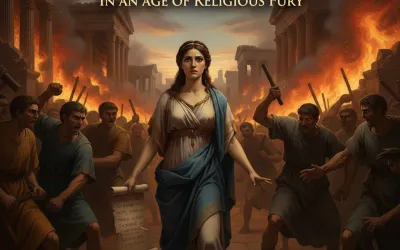
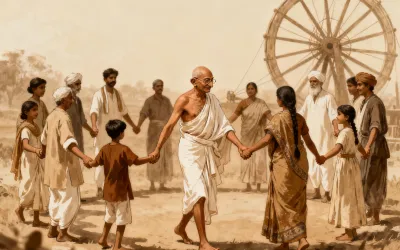
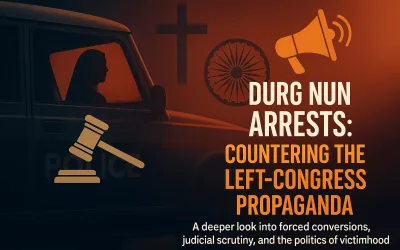
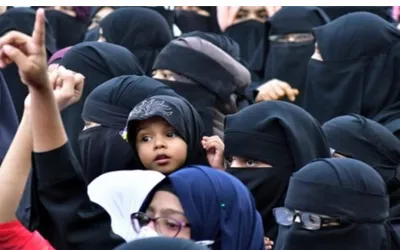
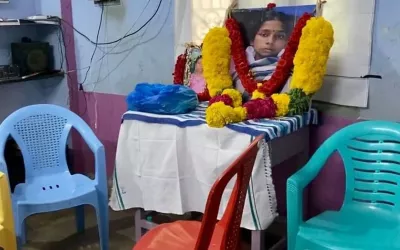
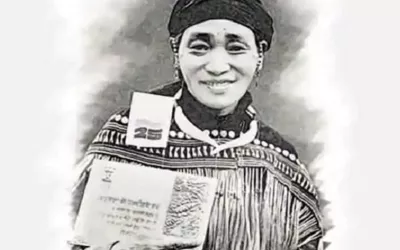
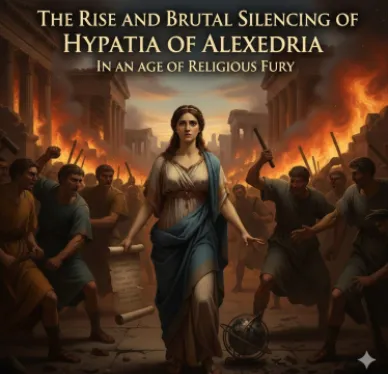

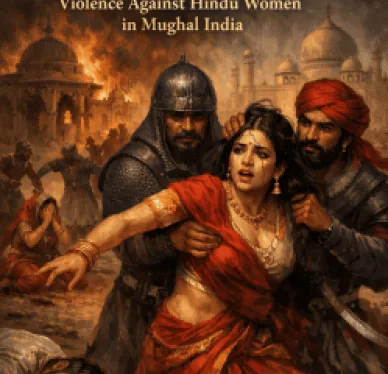
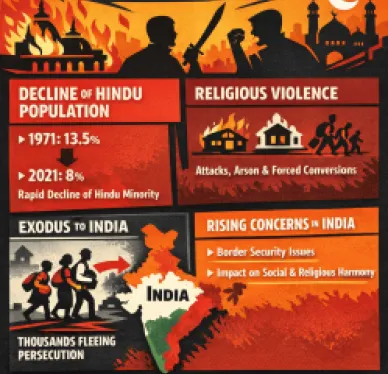
Comments
Add new comment